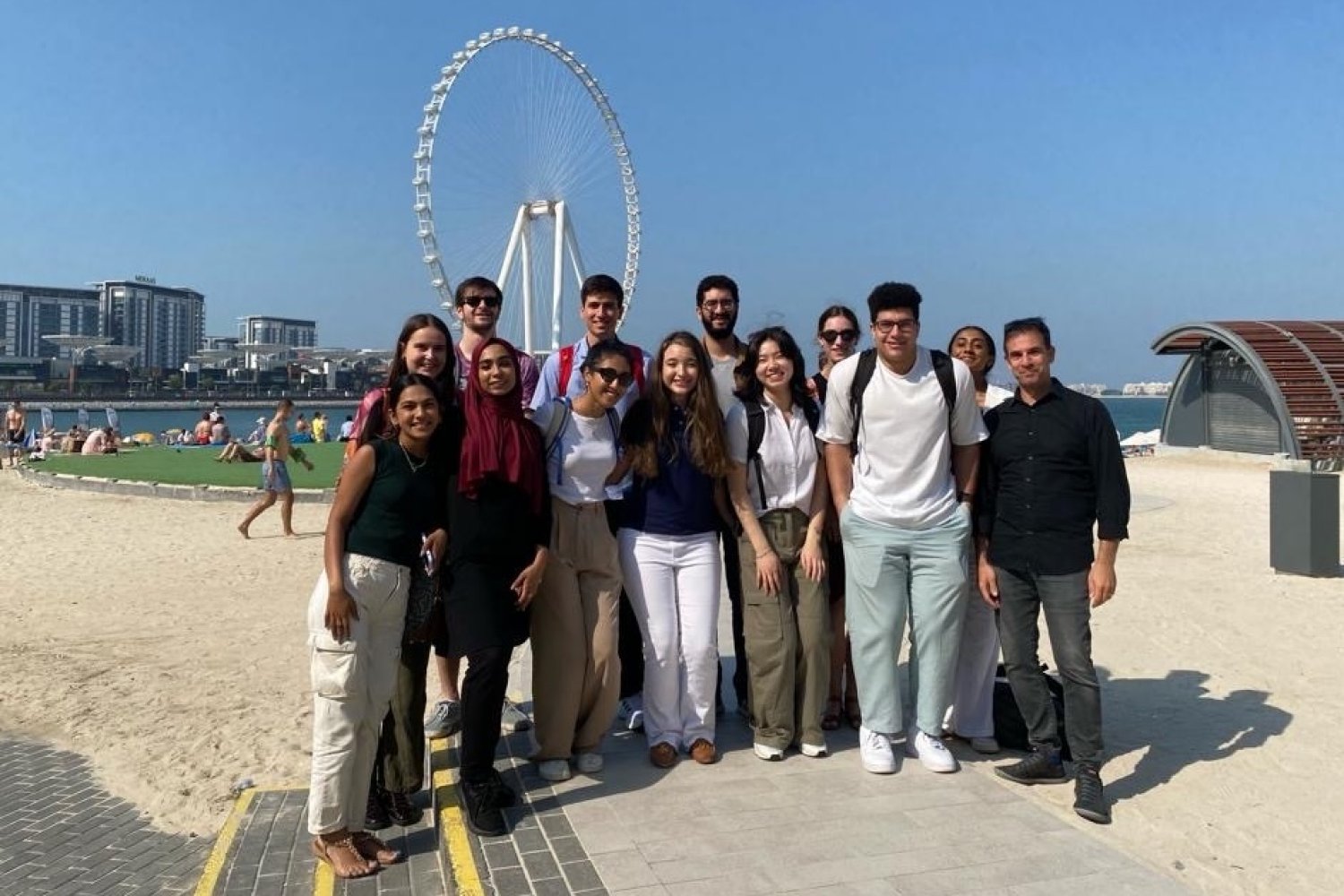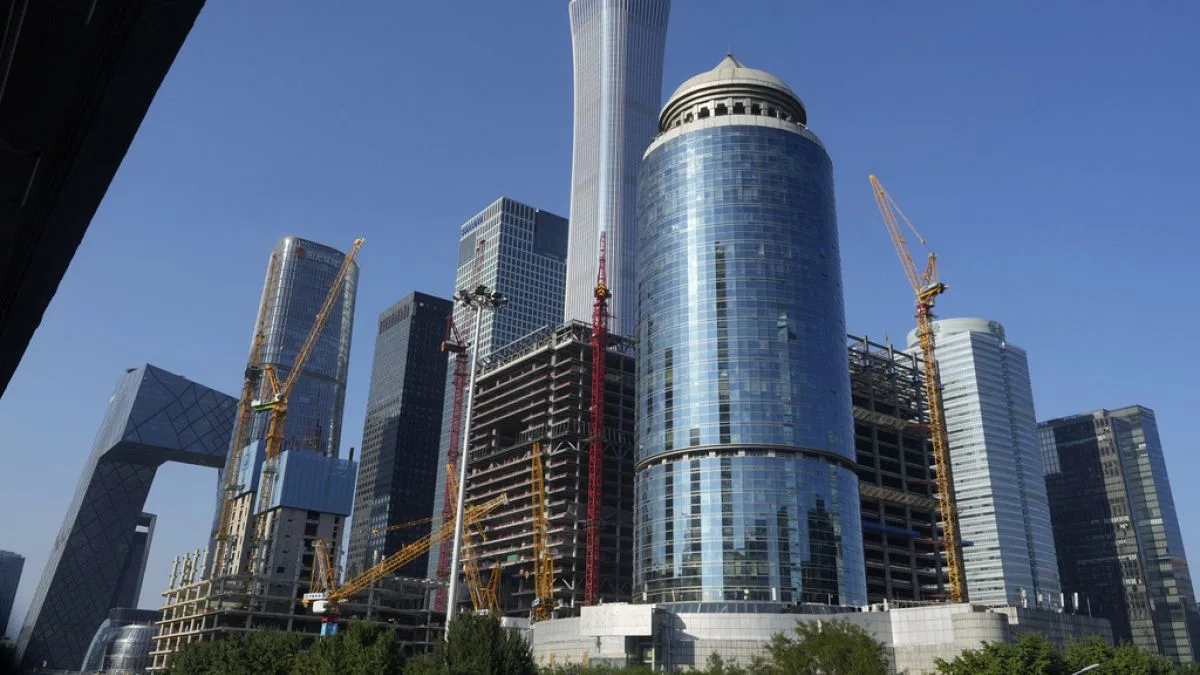For decades, MIT has cultivated a vibrant entrepreneurial culture, fostering innovative startups through a variety of programs and courses. A testament to this commitment is MITdesignX, a venture accelerator established in 2016 within the School of Architecture and Planning (SA+P), now integrated into the MIT Morningside Academy for Design, extending this entrepreneurial spirit globally.
In the last four years, faculty from SA+P have led engaging venture-building workshops in diverse locations such as Reykjavik, Iceland, and Venice, Italy, while also hosting academic programs and ideation sessions in places like Mexico City and Hong Kong. Recently, in collaboration with the MIT International Science and Technology Initiatives (MISTI) — the Institute’s global education hub — MITdesignX successfully completed its inaugural program in Dubai.
The MITdesignX Dubai accelerator (MDXB), orchestrated by MIT faculty and staff, is designed for early-stage ventures from the Middle East and North Africa (MENA) region, providing a comprehensive framework for startups to advance their commercial objectives, collaborate, and benefit from the expertise of MIT interns.
This marks an exciting new chapter for an accelerator primarily centered on sustainability. The latest call for applications in Dubai highlighted the theme of “Sustainable Growth of Urban Environments.”
“We unite our international cohorts around themes that resonate with both SA+P and global challenges,” explains Gilad Rosenzweig, executive director of MITdesignX. “Given the rapid urbanization, especially in developing countries, it is essential to approach this growth sustainably to protect both the environment and future residents. Every team in Dubai was tasked with identifying a pressing issue associated with urban living and developing a practical solution, along with a viable business model.” David Dolev, associate director of MISTI and managing director for MISTI’s MENA programs, has been nurturing connections in Dubai for years, looking for the ideal opportunity to involve MITdesignX.
“We continuously seek to spread MIT’s ‘mind and hand’ philosophy globally to create a measurable impact,” Dolev states. “Our mission at MISTI is to provide our students with a profound understanding of different cultures and countries, thereby preparing them to become the global leaders the world desperately needs.”
Advancing the Program
The MDXB initiative attracted over 100 applications, from which 12 teams were selected to participate in November 2023. In collaboration with the international entrepreneurship development company Global Growth Hub, MIT partnered with the Dubai Integrated Economic Zones Authority — a prominent quasi-governmental body — to secure funding for workshops, internships, 24-hour workspaces, lab access, industry connections, and local support for participating teams. The program operated from the vibrant Dubai Silicon Oasis Park located on the rapidly developing eastern edge of the city.
While MITdesignX on campus entails working with students, faculty, and research staff over a five-month period involving two academic courses, the abroad program offers a different experience. Early to mid-stage venture teams engage full-time for three to four months. Rosenzweig, alongside faculty director Svafa Gronfeldt, Monique Fuchs, Yscaira Jimenez, and other instructors, conduct two intensive workshops every three to four weeks.
This Dubai cohort stood out for its remarkable diversity; participants hailed not only from the United Arab Emirates but also from Egypt, India, Jordan, Israel, the Palestinian territories, the U.K., and Norway.
“Witnessing this diverse group collaborate and support each other amidst ongoing regional conflicts was remarkable,” Rosenzweig recalls. “With MISTI and MITdesignX, we’re transcending borders as a collective of entrepreneurs, students, and change-makers striving to forge a better world.”
Each team included an MIT student intern during January’s Independent Activity Period (IAP), creating mutual benefits for both MIT students and the Dubai entrepreneurs. Dolev notes, “The startup founders were thrilled to have our students aboard, bringing cutting-edge technical knowledge and fresh perspectives.”
The response from MIT students for the IAP program was overwhelming. “Sustainability and climate change are global priorities that resonate with all fields of study,” Dolev remarked. “Our students genuinely care about our planet’s future.”
Nicolas Stone Perez, a junior majoring in computer science, economics, and management, was one of the 12 students who spent the IAP in Dubai. He found the city to be a “beautiful blend of cultures.” Partnering with Fuse AE, a startup focused on converting fuel vehicle fleets to electric, he was inspired by the co-founders’ technical expertise and commitment to sustainability.
“The experience fostered a sense of empowerment and confidence in my ability to contribute positively in different cultural contexts,” Stone Perez reflected. “I didn’t expect this personal growth coming into the program.”
Previously undertaking solo MISTI experiences, Stone Perez appreciated the camaraderie fostered among students. During weekends, they explored the city, attended alumni events, rode camels in the desert, and even visited neighboring countries.
Andrea Aude, another intern, had a memorable moment biking through the desert when an Arabian oryx crossed their path. Captivated by their story of near extinction and recent resurgence, she cherished the encounter.
The MIT senior, majoring in chemical engineering, interned with Othalo, a company innovatively transforming plastic waste into affordable housing solutions. “I was drawn to this startup’s impact-driven focus on sustainability and the chance to immerse myself in a different work culture,” Aude noted.
She found the Dubai work atmosphere to be less structured and more personal than in the U.S. “Here, it’s often a relentless pace, very formal. In Dubai, meetings flowed over tea, which I found refreshing. It made me ponder how different cultures shape their work environments and what lessons we could learn,” she expressed.
Like Stone Perez, Aude’s time at the startup ignited her entrepreneurial aspirations. “I’m eager to scale technological advancements,” shared Aude, who plans to pursue a doctorate in chemical engineering at Princeton University. “Commercializing technology is crucial for creating meaningful change.”
Future Prospects
Reflecting on the initial MDXB cohort, Rosenzweig noted that all teams made significant adjustments to their business models, positioning them better for market entry and fundraising. Announcements for the second cohort, which will expand to include agritech solutions, are expected this summer. Dubai’s burgeoning startup ecosystem, coupled with its strategic location for quick access to Southeast Asia, Africa, and Europe, enhances its appeal for international entrepreneurs.
Dolev views MISTI’s debut in the UAE as a triumphant venture. “The demand for programs like this will only rise. Both MIT students and global investors are eager to engage with impactful startups — a core promise this accelerator offers to the region and the MIT community. I am optimistic that this MISTI-designX initiative can be replicated across the globe.”
Photo credit & article inspired by: Massachusetts Institute of Technology



